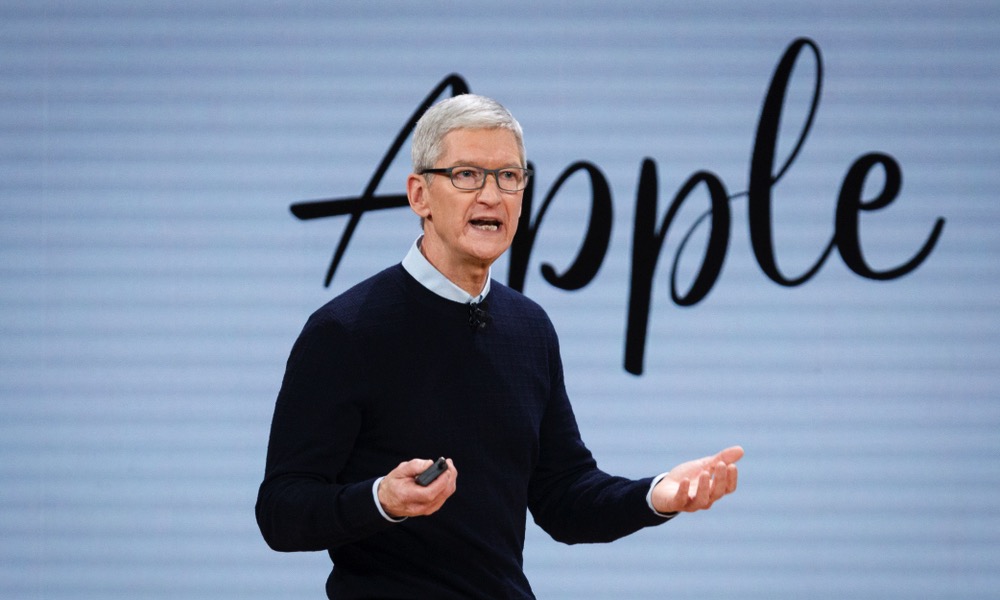Apple Delays Office Return Until 2022 as COVID-19 Delta Variant Rages On
 Credit: John Gress Media Inc. / Shutterstock
Credit: John Gress Media Inc. / Shutterstock
Toggle Dark Mode
Although it appears that Apple has yet to make up its mind on whether employees will need to be vaccinated before returning to work, it sounds like its corporate team members can rest a bit easier, as they won’t be expected to return to Apple Park for at least the remainder of 2021.
Apple’s Senior VP of Retail and People, Deirdre O’Brien, reportedly sent out an internal memo to all employees last night that was shared independently by both Bloomberg and The Verge. In the email, O’Brien noted that the company will be delaying its mandatory return to work until at least January 2022, although of course that could still change.
Back in June, Apple announced that it expected staff to return in September, where most would be required to work in-person at Apple Park for three days per week — Mondays, Tuesdays, and Thursdays — but would have the option of working from home on Wednesdays and Fridays. Employees would also be able to work remotely for two weeks per year, subject to approval by their managers.
Even though this policy turned out to almost identical to the plan that Google announced for its employees several months earlier, a small but vocal group within Apple began protesting the policies, and some even began packing their parachutes, looking to greener pastures with more flexible remote work options.
While employee protests within Apple appear to have fallen on deaf ears, the entire group got a reprieve when Apple announced last month that it would be pushing its return to work plans off into at least October, amidst an upswing in COVID-19 cases.
Around the same time, Apple CEO Tim Cook was asked whether the company planned to make vaccinations mandatory for those who would be returning to work. While its big tech brethren like Google has taken a more hardline stance in this area, Cook has been trying to decide whether it’s “the right answer or not,” but also added that the company is more focused on when employees should return to work at this point.
When Apple told staff that it was pushing the return back to October, it also promised that it would provide them with at least a month’s notice before they’re actually required to return.
I know there are feeling of frustration that the pandemic is not yet behind us. For many colleagues around the world, this period has been a time of great tragedy, suffering, and heartbreak. Please know that we are all here to support one another and stand with one another during such challenging times.
Deirdre O’Brien, Apple’s Senior VP of Retail and People
This policy continues to apply now that Apple has pushed the mandatory return date into 2022, and while Apple hasn’t yet come to a decision on mandatory vaccinations, it is strongly encouraging staff to get vaccinated, and increasing the frequency of its at-home COVID-19 testing program for staff.
Meanwhile, Apple’s retail stores have mostly remained open since earlier this year, although rising case counts have pushed Apple to bring back its mask requirements, with all employees and customers required to mask up regardless of vaccination status. Apple also had to close a store in Charleston, SC this week after more than 20 employees were exposed to COVID-19.
An All-Virtual Fall Event Schedule
Needless to say, this means we can most definitely expect a repeat of last year when it comes to Apple’s fall events.
While it’s generally been assumed that the September iPhone Launch event would still be held virtually, there was originally some speculation that Apple might have been able to hold a later in-person event for the launch of its new M1X-powered MacBook Pro lineup in November.
Based on the original schedule, Apple employees would have been well settled in by the time that launch was supposed to occur, although we’re still not sure Apple would have been ready to open up the Steve Jobs Theatre to visitors at that point.
At this point, however, it’s a safe bet that with employees not even coming back to Apple Park until 2022, we can expect all of this fall’s events to follow the same virtual format that we saw introduced last year.
This also means that Apple may choose to hold more individual events than it otherwise would. The virtual format avoids the need for press and analysts to physically travel and allows Apple to offer a more focused set of presentations.
Last year’s event schedule may have been driven by the delayed launch of the iPhone 12 lineup, but it’s also possible that Apple had three events in mind all along. Had the iPhone 12 been ready on time, Apple may have chosen to put off the iPad announcements until an October event.
We’re expecting quite a bit from Apple this fall, including the new iPhone lineup, the Apple Watch Series 7, an exciting new iPad mini 6, a thinner and faster entry-level iPad, and Apple’s next-generation “AirPods 3” — and that doesn’t even include the new MacBooks, which we’re already pretty sure will get their own event in November.
It’s a lot for Apple to cover in a single event, especially now that it’s moved to the newer and shorter virtual event format, and analysts are already speculating that Apple is going to announce these in “a series of events,” and while the timing isn’t quite clear yet, we’d guess that we’ll see the same sort of September-October-November trifecta that we did last year.






